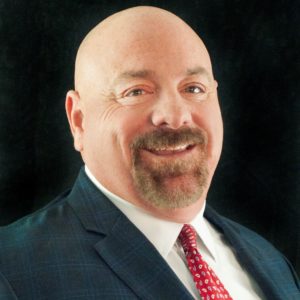Understanding Depression Among Seniors

Dr. Mark Pollack, chief medical officer, Myriad Neuroscience
A recent national survey, the GeneSight Mental Health Monitor, revealed concerning details about seniors’ reluctance to seek help for depression. The survey found that nearly two-thirds of Americans age 65 and older who experience depression will not seek treatment. One-third of those seniors believe that they can “snap out of it” without help.
The COVID-19 pandemic has only exacerbated this issue. Physical distancing measures intended to protect seniors from illness have increased their isolation, a factor closely tied to depression.
The study highlights the importance of not only working to preserve and continue important daily interactions and relationships that are essential to seniors, but in also identifying depression symptoms and ensuring seniors get the help that they need.
How the Pandemic Has Contributed to Senior Depression
While social isolation may help protect seniors from COVID-19, it’s having a significant toll on their mental health. Dr. Mark Pollack, chief medical officer of Myriad Neuroscience, makers of the GeneSight test, notes the impacts of social distancing. “The isolation or lack of interactions with others has resulted in high rates of anxiety and depression for all Americans,” he explains. “That may be particularly true for [the elderly]. Isolation and the inability to interact with loved ones and friends can result in a significant toll that manifests in feelings of sadness, depression, and loneliness.”
Dr. Pollack explains that seniors are also experiencing higher rates of anxiety, and their physical function may also be negatively impacted. “Illnesses and disabilities that seniors already have can worsen, and a senior’s ability to get around and ambulate can be impacted.”
Recognizing Depression in Seniors
In a senior care setting, it’s important that staff understand the common signs of depression in seniors to help recognize when a resident may need help. According to Dr. Pollack, depression commonly manifests as persistent feelings of sadness that can last for days, weeks, or months. “In some cases, individuals will talk about feeling down or not quite themselves. Some say that they’re feeling stressed and may talk about loneliness.”
Other common symptoms include:
- Physical symptoms like sleeping, waking up early, or having trouble falling asleep.
- Changes in appetite that may result in weight gain or loss.
- Decreased energy and less willingness to participate in activities.
- Lack of motivation – residents who previously kept a clean room may start to let things go.
- Difficulty concentrating and the inability to focus on a book or follow a TV show.
It’s important to understand the way that seniors think about depression. Dr. Pollack notes that many seniors grew up in a time when talking about mental illness might have been considered shameful. “People were supposed to pick themselves up by the bootstraps, and they may not talk about emotional feelings, but rather, symptoms.”
Listening to what a senior is saying may provide insight to whether they are depressed. “People with depression may talk about wishing they weren’t around anymore, or saying that they would just as soon be dead. A person with depression might suddenly start complaining about physical symptoms like aches and pains or shortness of breath, for which there’s no obvious medical contribution,” explains Dr. Pollack.
Some seniors may be reluctant to use the word depression.
“Some seniors are more comfortable talking about stress,” says Dr. Pollack, “so that’s a way to introduce the conversation sometimes.”
Dr. Pollack notes that it’s useful for staff to monitor residents for the above changes and symptoms. Monitoring food intake, weight loss or gain, sleeping habits, and whether a resident is withdrawing from activities they once enjoyed can identify whether that resident may need help.
“If you suspect depression, it’s always important to ask about whether the individual has had thoughts about hurting themselves or wishing they were dead,” says Dr. Pollack. “People are often afraid to ask in these situations because they think they’ll introduce the thought. That won’t happen, and often, people are relieved to have that conversation.”
Supporting Residents With Treatment for Depression
While therapy is an important element in treating depression, medication also plays a significant role. Unfortunately, finding the medication that works best for an individual can take time. “While medications often have similar mechanisms of action, they’re all somewhat different in terms of their chemical composition and how individuals process or metabolize them,” explains Dr. Pollack. To some extent, the differences in how individuals metabolize medications is due to genetic control. “We all inherit different genetic dispositions that make us metabolize different drugs differently.”
The field of pharmacogenetics has emerged to better understand the role that genes play in medication metabolization. By studying how people respond to drug therapy and how their genetic makeup contributes to that, scientists can better understand how individuals might respond to future medications.
GeneSight Psychotropic is a pharmacogenomic test that analyzes genetic variations in DNA. Doctors can use those results to better understand how a patient may respond to medications that are commonly prescribed to treat depression, anxiety, and other psychiatric conditions.
While the GeneSight test offers many benefits for anyone taking medications for conditions like depression and anxiety, it offers distinct advantages for seniors who are working with doctors to find the right medication to treat depression or anxiety. “A test like GeneSight can guide a physician, helping them to select the medications that a senior will process in a normal, reasonable fashion,” says Dr. Pollack.
That isn’t always an easy task. Physicians can choose from many medications, and they need to be able to find a medication that a patient can tolerate and that also works for the patient. “It’s not unusual for people to undergo two, three, four or more medication trials before finding something that works and that they tolerate,” explains Dr. Pollack.
That trial and error process can take a toll not only on the patient, but also on their families and caregivers. The process can be frustrating, and if a senior is suffering from depression, there’s a sense of urgency driving the need to find a suitable medication. “Physicians are finding GeneSight helpful, in that it gives them some guidance when they’re trying to make those decisions,” says Dr. Pollack.
Supporting Residents With Depression
Support is key for residents with depression. Senior care communities need to be aware of the enhanced propensity for depression, given the effects of the social distancing measures that have been in effect for nearly a year. Discussing depression symptoms with staff and involving staff in monitoring residents for symptoms can help a facility to determine when residents may need extra help.
It’s important that a facility be prepared to connect a resident with the resources they need. That might mean alerting family to the issue, scheduling a doctor’s appointment, or helping to coordinate telehealth counseling.

Paige Cerulli is a contributing writer to i Advance Senior Care.
Related Articles
Topics: Activities , Articles , Featured Articles , Resident Care











